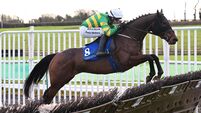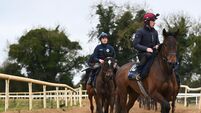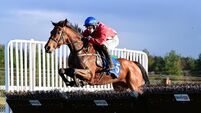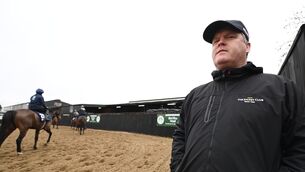Culloty’s golden memories
As Best Mate chased equine immortality in his bid to become the first horse since the legendary Arkle to win the Cheltenham Gold Cup three times, he found himself hemmed in, first by the Andrew Thornton-ridden Sir Rembrandt, and then by Paul Carberry on Harbour Pilot just as the 2004 renewal was coming to the boil.
It looked like Best Mate was in peril but jockey Jim Culloty was never worried and Best Mate proved he was as gutsy as he was talented by getting out of trouble and going on to win by half a length ahead of Sir Rembrandt with Harbour Pilot back in third.












